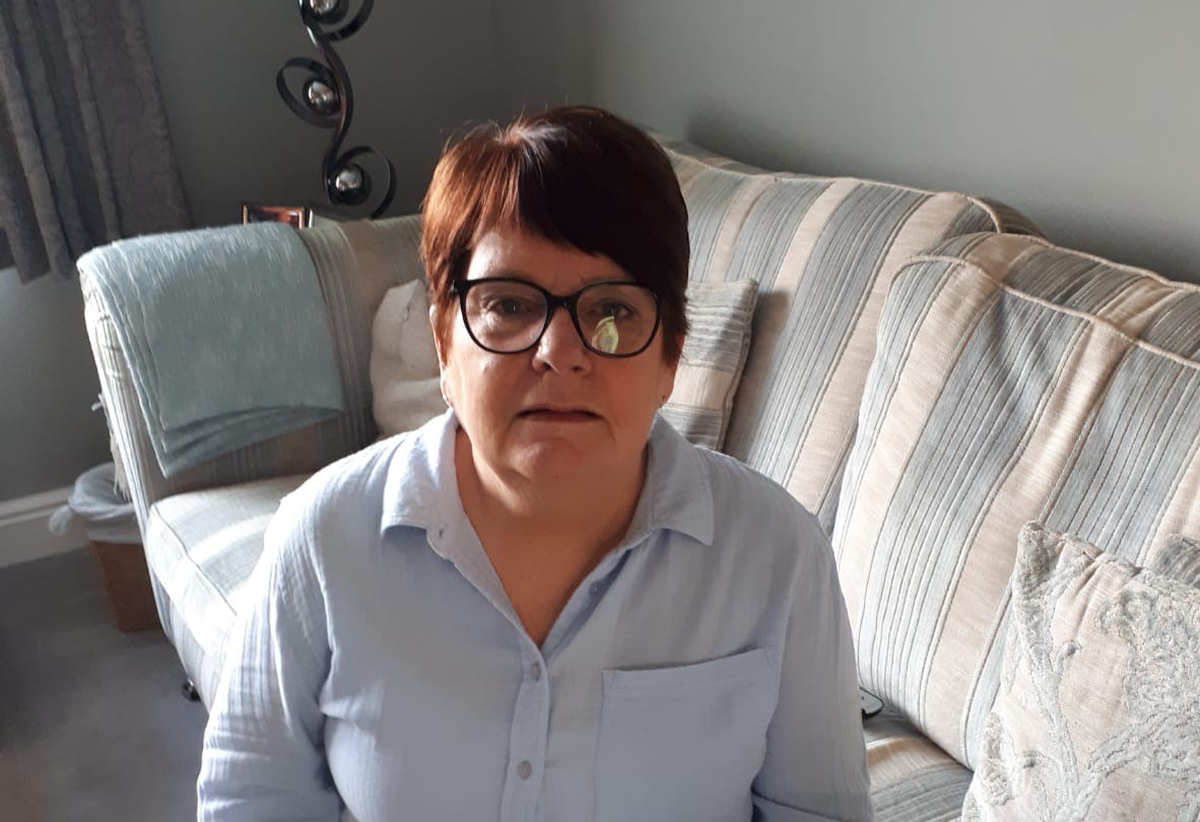When Rachel Bytheway went for a routine eye check at her Bridgnorth opticians, the last thing she expected to hear was that she was in the early stages of a serious eye disease.

Although she had noticed a recent decline in her vision, Rachel thought it was just because she was getting older, but her optician from Specsavers Bridgnorth suspected something more sinister was going on.
When optometrist Teresa Hughes carried out an Optical Coherence Tomography (OCT) scan, which allows for more detailed examination of the back of the eyes, she noticed her optic nerve looked slightly thinner than it should be, arousing her suspicions of early-stage glaucoma.
After referring Rachel to the Telford community eye clinic, further tests by an ophthalmologist revealed problems with pressure in her eye and confirmed the diagnosis of glaucoma. Rachel is now taking drops to correct this.
As part of Glaucoma Awareness Week from June 24th – 30th, Rachel wanted to draw attention to the importance of early detection by ensuring people have regular eye checks at their opticians.
“I needed new specs and to go for my two-yearly check-up,” says the 64-year-old from Bridgnorth. “I had also recently noticed a decline in my eyesight as when I was watching television, things seemed blurred around the edges.
“The optometrist took quite a long time looking at my images after the scan, explaining she could see something that shouldn’t be happening and that she was referring me to the specialist eye clinic.
“After carrying out further tests, the ophthalmologist told me I had glaucoma in the right eye and early-stage glaucoma in my left as well,’ continues Rachel. ‘I was a bit shocked because there’s no history of it in my family, but I guess it’s got to start somewhere.
“I was already wearing specs for close-up work and reading, but now I wear varifocals as my distance vision has also deteriorated a bit. I also have to put drops in for the rest of my life to keep the pressure in the eye at a lower level and manage the glaucoma.”
Rachel expressed her gratitude to Specsavers Bridgnorth for detecting the glaucoma and taking action to save her sight. “I would encourage everyone to get their eyes checked regularly, including an OCT, so any potential problems can be dealt with as early as possible, which is the key to preventing long-term vision problems.”
Glaucoma usually occurs when naturally occurring fluid inside the eye does not drain properly, leading to a build-up of pressure. This can then cause damage to the optic nerve and nerve fibres from the retina, in most cases without any symptoms. While the condition cannot be reversed, it can be managed – but early detection is key.




 Shropshire Live is regulated by
Shropshire Live is regulated by